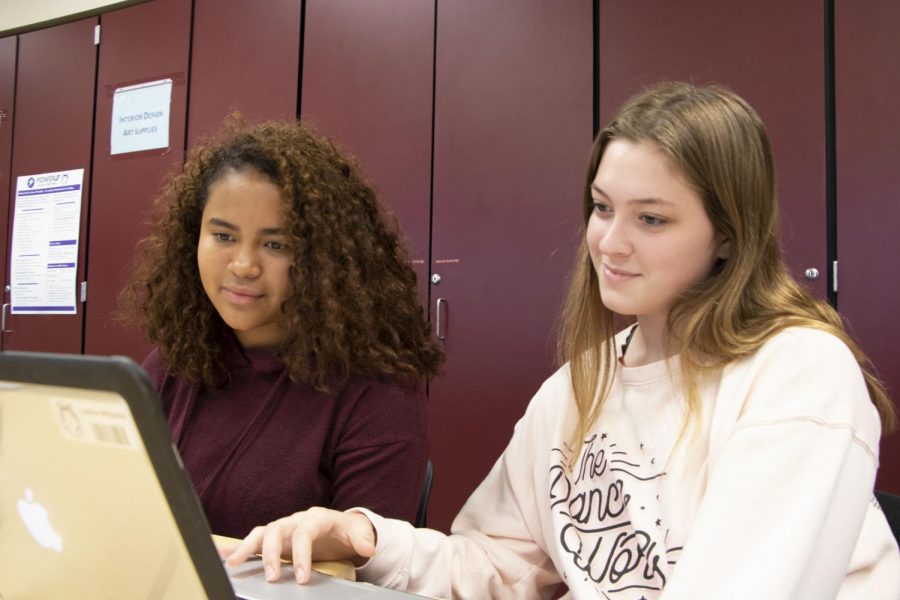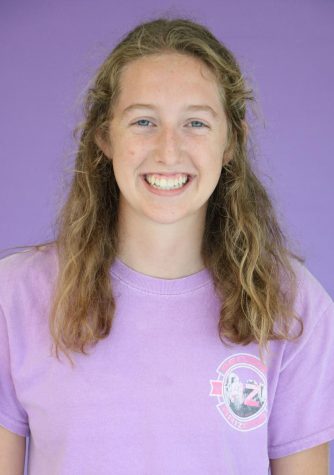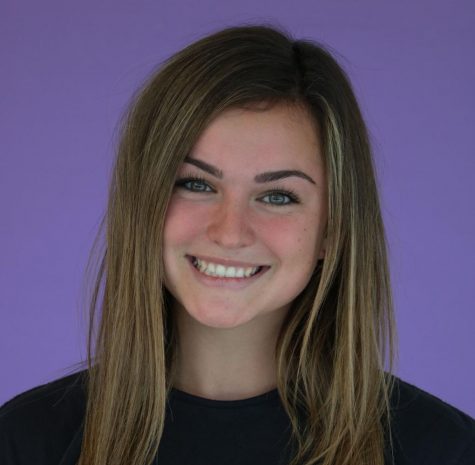Lending a helping hand
Junior Emily Lanning spends a class peer tutoring and building relationships with other students at Northwest who are learning English.
Junior Emily Lanning peer tutors junior Leisha Williams in her history class.
May 23, 2019
As an ESOL tutor for students whose second language is English, junior Emily Lanning helps two students, Leisha Williams and Chenrui Li in history class each day.
ESOL teacher Alyssa Schlumpf said the ESOL program helps students who aren’t completely proficient in reading, speaking, writing, listening and speaking in English.
Peer tutors such as Lanning are important, Schlumpf said, because they help stand in for the teachers since they don’t always have the opportunity to work with each student every day.
“There are so many things going on in a classroom that a native speaker comprehends.” Schlumpf said. “There’s all these things going on at the same time and that’s a lot for somebody who is slowly becoming proficient.”
She chooses her peer tutors wisely, Schlumpf said, because there are many qualities that are important when specifically working with ESOL students. Although she and Lanning haven’t worked together often, Schlumpf said she said that Lanning embodies the best characteristics of a good peer tutor including being helpful, gentle, kind and flexible.
“She doesn’t push when a student doesn’t want help” Schlumpf said. “You have to work around that student’s personality.”
Lanning said that she enjoys mentoring and working with the ESOL students because they can connect and form bonds through the class. She also said that learning about their history and watching them adapt to an entirely new culture and system helps her build relationships outside of class.
Lanning said she decided to enroll in being an ESOL peer tutoring based on a recommendation from a friend, in which she began tutoring Williams and Li in Geometry first semester and in history second semester.
“It’s fun to just take a break from other classes.” Lanning said. “But it’s also really rewarding to know that you are actually doing something and helping out.”
Junior Leisha Williams moved to the U.S from Nicaragua in 2016, and said that she didn’t know any English before she moved. The drastic differences in schedules and setups of classes were intimidating at first, Williams said, but her experience with the ESOL program has helped her improve her English considerably.
“Emily is always nice. And no matter what, she’s always there.” Williams said. “Because I’m from another country, she’s helping me with my English. If I don’t understand something, she’ll explain it to me.”
During class, Lanning said, she will help her ESOL students however they need it. She said she often reads the instructions for them in simpler terms to help them understand the assignments and they work together if they need help.
“It’s fun to see what they are learning and how they pick up on different things so fast,” Lanning said. “And to see some things that they didn’t pick up on, like American culture, which we all assume is obvious, but phrases and stuff like that they had never heard before.”
Throughout this year, Lanning said she has developed friendships with both of the students she tutors, Williams and Chenrui. Although they will both not be in the program next year due to their high levels of English, Lanning said that she looks forward to talking to them and staying friends with them in the 2019-2020 school year.
“It’s really cool that all the public schools in the area have [the ESOL program].” Lanning said. “I think it’s really cool that they have something for all kinds of people, and that we can work with people from different cultures.”










